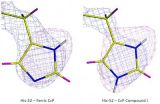(Press-News.org) A reduction in alcohol consumption, even for light-to-moderate drinkers, could be linked to improved cardiovascular health, including a reduced risk of coronary heart disease, lower body mass index and blood pressure, according to new research published in The BMJ.
These latest findings challenge the results of previous observational studies which found that the consumption of light-to-moderate amounts of alcohol (12-25 units per week) may have a protective effect on cardiovascular health.
The research, led by the London School of Hygiene & Tropical Medicine with University College London and University of Pennsylvania, looked at evidence from over 50 studies into the drinking habits and cardiovascular health of over 260,000 people. They found that individuals who carry a genetic variant which tends to lower their alcohol consumption have, on average, a more favourable cardiovascular profile. The authors say this suggests that a reduction in alcohol consumption, even for light-to-moderate drinkers, is beneficial for cardiovascular health.
Specifically, the researchers found that these individuals had on average a 10% lower risk of having coronary heart disease, lower blood pressure and a lower Body Mass Index (BMI).1
Senior author Juan P. Casas, Professor of Epidemiology at the London School of Hygiene & Tropical Medicine, said: "While the damaging effects of heavy alcohol consumption on the heart are well-established, for the last few decades we've often heard reports of the potential health benefits of light-to-moderate drinking. However, we now have evidence that some of these studies suffer from limitations that may affect the validity of their findings. In our study, we saw a link between a reduced consumption of alcohol and improved cardiovascular health, regardless of whether the individual was a light, moderate or heavy drinker. Assuming the association is causal, it appears that even if you're a light drinker, reducing your alcohol consumption could be beneficial for your heart."
In this study, the researchers used a gene that serves as an indicator of alcohol consumption. Individuals that carry a genetic variant of the 'alcohol dehydrogenase 1B' gene are known to breakdown alcohol at a different pace. This causes unpleasant symptoms including nausea and facial flushing, and has been found to lead to lower levels of alcohol consumption in the long term. By using this genetic variant as an indicator of lower alcohol consumption, they were able to find associations between these individuals and improved cardiovascular health.
Studies into the long-term health effects of alcohol can be challenging, due to the difficulty of setting up randomised control trials involving many individuals who will maintain the same alcohol consumption levels over an extended period of time. The authors say that their study's genetic approach parallels the principles of a randomised control trial and therefore makes it less prone to some of the limitations of previous observational studies. These limitations are partly due to bias from the effects of other good health behaviours associated with a lifestyle of low-to-moderate alcohol consumption. This may explain why a protective effect has been observed in past studies, but does not mean that alcohol itself is protective.
Previous observational studies are also limited by the issue of distinguishing between self-reported non-drinkers, who may include those who have never consumed alcohol, and those who consumed alcohol in the past but have since stopped as a result of ill-health. Issues like these make it difficult for observational studies to assess the health effects of long-term alcohol consumption levels.
The current study's results strongly suggest that reduction of alcohol consumption is beneficial for cardiovascular health, and is closer to establishing causality than observational studies, however further replication of similar genetic studies using large-scale prospective studies, such as the UK Biobank, will be needed.
The study was funded by the British Heart Foundation and the Medical Research Council.
Dr Shannon Amoils, Senior Research Advisor at the British Heart Foundation, said: "Studies into alcohol consumption are fraught with difficulty in part because they rely on people giving accurate accounts of their drinking habits. Here the researchers used a clever study design to get round this problem by including people who had a gene that predisposes them to drink less. The results reinforce the view that small to moderate amounts of alcohol may not be healthy for the heart although the study would need to be repeated in a larger group of people for definitive results. Whilst the heart health effects of light to moderate alcohol consumption are still unclear, what is clear is that drinking more than the recommended limits of alcohol can have a harmful effect on the heart."
INFORMATION:
The study was an international collaboration that included 155 investigators from the UK, continental Europe, North America, and Australasia.
To request a copy of the paper or to interview the authors, please contact Joel Winston in the London School of Hygiene & Tropical Medicine press office on press@lshtm.ac.uk or +44(0)207 927 2802.
Notes to editors
1. Individuals with the genetic variant had, on average, a reduction in blood pressure of 0.88 mm HG and a reduction in BMI of 0.17 kg/m2. They also consumed 17.2% fewer units of alcohol per week and had lower odds of binge drinking and higher odds of abstention.
2. Paper reference: Michael V Holmes, Caroline E Dale et al. Association between alcohol and cardiovascular disease: mendelian randomisation analysis based on individual participant data. The BMJ. DOI: 10.1136/bmj.g4164
3. If you wish to provide a link to this paper for your readers, please use the following, which will go live at the time the embargo lifts: http://www.bmj.com/content/349/bmj.g4164
About the London School of Hygiene & Tropical Medicine
The London School of Hygiene & Tropical Medicine is a world-leading centre for research and postgraduate education in public and global health, with 3,900 students and more than 1,000 staff working in over 100 countries. The School is one of the highest-rated research institutions in the UK, and was recently cited as the world's leading research-focused graduate school. Our mission is to improve health and health equity in the UK and worldwide; working in partnership to achieve excellence in public and global health research, education and translation of knowledge into policy and practice. http://www.lshtm.ac.uk
Heart health benefits of light drinking brought into question
Reduction in alcohol consumption, even for light-to-moderate drinkers, could be linked to improved cardiovascular health, including a reduced risk of coronary heart disease, lower body mass index and blood pressure
2014-07-11
ELSE PRESS RELEASES FROM THIS DATE:
Injected vaccine could help eradicate polio
2014-07-11
Re-introducing a type of polio vaccine that fell out of favour in the 1960s could hasten eradication of the disease, according to new research.
The study, by Imperial College London and the Christian Medical College in Vellore, India, suggests that the injected polio vaccine (IPV), which is rarely used today in countries affected by polio, could provide better and longer lasting protection against infection if used in combination with the more commonly used live oral polio vaccine (OPV).
The findings are published today in The Lancet.
Vaccination protects an individual ...
The Lancet: World's most advanced dengue vaccine candidate shows promise in phase 3 trial
2014-07-11
The first dengue vaccine candidate (CYD-TDV) to reach phase 3 clinical testing has shown moderate protection (56%) against the disease in Asian children, according to new research published in The Lancet.
Dengue is a mosquito-borne disease that infects around 390 million people each year, of whom about 96 million suffer from symptomatic infection. WHO estimates that the global burden of dengue has risen 30-fold over the past 50 years, with over half of the world's population at risk of the disease.
There is no licensed vaccine available to treat or prevent dengue ...
The Lancet: Extra dose of inactivated polio vaccine boosts immunity in children and could speed up global eradication efforts
2014-07-11
Giving children under 5 years old an extra dose of inactivated polio vaccine (IPV) helps to boost their immunity to the poliovirus and should be added to vaccination programmes in polio-endemic countries and those facing a high risk of imported cases, suggests new research published in The Lancet.
Lead author Dr Jacob John from Christian Medical College, India explains, "Adding a supplementary IPV dose to children already vaccinated with oral poliovirus vaccine (OPV) may hasten polio eradication by boosting herd immunity in endemic regions, act as a booster to prevent ...
The Lancet: Novel treatment for drug-resistant tuberculosis shows promise, but concerns for patient safety remain
2014-07-11
In a viewpoint published this week in The Lancet, the Community Research Advisors Group (CRAG) argue that research into bedaquiline – a new drug, fast tracked for multidrug-resistant tuberculosis (MDR-TB) – should proceed cautiously in people with drug-sensitive tuberculosis. CRAG, an international, community-based advisory board for the US Centers for Disease Control and Prevention's Tuberculosis Trials Consortium, writing in The Lancet independently, urge researchers to balance the goal of shortening treatment for drug-sensitive TB with patient safety.
Bedaquiline ...
Cost of expensive medication in dialysis catheters may be offset by reduced complications
2014-07-11
Washington, DC (July 10, 2014) — Using an expensive agent to prevent blood clots in kidney failure patients' dialysis catheters may turn out to be less costly overall due to its ability to reduce medical complications, according to a study appearing in an upcoming issue of the Journal of the American Society of Nephrology (JASN).
Recombinant tissue plasminogen activator (rt-PA) is a medication used to break up blood clots that occur in the vessels of patients having a heart attack. A recent clinical trial revealed that using rt-PA once per week plus the anticlotting agent ...
High stress, hostility, depression linked with increased stroke risk
2014-07-10
Higher levels of stress, hostility and depressive symptoms are associated with significantly increased risk of stroke or transient ischemic attack (TIA) in middle-age and older adults, according to new research in the American Heart Association journal Stroke.
A TIA is a stroke caused by a temporary blockage of blood flow to the brain.
Researchers investigated how psychological factors might influence risk for chronic disease, using data from the Multi-Ethnic Study of Atherosclerosis (MESA), an ongoing study on cardiovascular disease risk factors in participants living ...
After a concussion, which teens will have emotional symptoms?
2014-07-10
CHICAGO – After a concussion, teens who are sensitive to light or noise may be more likely to also have emotional symptoms such as anxiety, according to a study released today that will be presented at The Sports Concussion Conference in Chicago, July 11 to 13, 2014, hosted by the American Academy of Neurology, the world's leading authority on diagnosing and managing sports concussion. The conference will feature the latest scientific advances in diagnosing and treating sports concussion from leading experts in the field.
The symptoms after a concussion can vary widely ...
Neutron crystallography solves long-standing biological mystery
2014-07-10
The controversy centres around a family of enzymes known as heme enzymes, due to the presence of a heme group in their active site. At the centre of the heme cofactor is an iron (Fe) atom, which becomes oxidised (ferryl) when a reacting heme is in an intermediate state called Compound I. The question that has remained unanswered for decades is whether this oxidation involves just an oxygen atom (O), or a hydroxyl group (OH). Resolving this fundamental question has implications for understanding oxidative processes within living cells, which is critically important for drug ...
Astronomers find 7 dwarf galaxies with new telescope
2014-07-10
Meet the seven new dwarf galaxies.
Yale University astronomers, using a new type of telescope made by stitching together telephoto lenses, recently discovered seven celestial surprises while probing a nearby spiral galaxy. The previously unseen galaxies may yield important insights into dark matter and galaxy evolution, while possibly signaling the discovery of a new class of objects in space.
For now, scientists know they have found a septuplet of new galaxies that were previously overlooked because of their diffuse nature: The ghostly galaxies emerged from the night ...
Study provides new approach to forecast hurricane intensity
2014-07-10
VIDEO:
This is the one-of-a-kind, Alfred C. Glassell, Jr., SUSTAIN research facility at the UM Rosenstiel School of Marine and Atmospheric Science, where Haus and colleagues will conduct further studies on...
Click here for more information.
MIAMI – New research from University of Miami (UM) Rosenstiel School of Marine and Atmospheric Science suggests that physical conditions at the air-sea interface, where the ocean and atmosphere meet, is a key component to improve forecast ...
LAST 30 PRESS RELEASES:
Scientists develop new gut health measure that tracks disease
Rice gene discovery could cut fertiliser use while protecting yields
Jumping ‘DNA parasites’ linked to early stages of tumour formation
Ultra-sensitive CAR T cells provide potential strategy to treat solid tumors
Early Neanderthal-Human interbreeding was strongly sex biased
North American bird declines are widespread and accelerating in agricultural hotspots
Researchers recommend strategies for improved genetic privacy legislation
How birds achieve sweet success
More sensitive cell therapy may be a HIT against solid cancers
Scientists map how aging reshapes cells across the entire mammalian body
Hotspots of accelerated bird decline linked to agricultural activity
How ancient attraction shaped the human genome
NJIT faculty named Senior Members of the National Academy of Inventors
App aids substance use recovery in vulnerable populations
College students nationwide received lifesaving education on sudden cardiac death
Oak Ridge National Laboratory launches the Next-Generation Data Centers Institute
Improved short-term sea level change predictions with better AI training
UAlbany researchers develop new laser technique to test mRNA-based therapeutics
New water-treatment system removes nitrogen, phosphorus from farm tile drainage
Major Canadian study finds strong link between cannabis, anxiety and depression
New discovery of younger Ediacaran biota
Lymphovenous bypass: Potential surgical treatment for Alzheimer's disease?
When safety starts with a text message
CSIC develops an antibody that protects immune system cells in vitro from a dangerous hospital-acquired bacterium
New study challenges assumptions behind Africa’s Green Revolution efforts and calls for farmer-centered development models
Immune cells link lactation to long-lasting health
Evolution: Ancient mosquitoes developed a taste for early hominins
Pickleball players’ reported use of protective eyewear
Changes in organ donation after circulatory death in the US
Fertility preservation in people with cancer
[Press-News.org] Heart health benefits of light drinking brought into questionReduction in alcohol consumption, even for light-to-moderate drinkers, could be linked to improved cardiovascular health, including a reduced risk of coronary heart disease, lower body mass index and blood pressure


